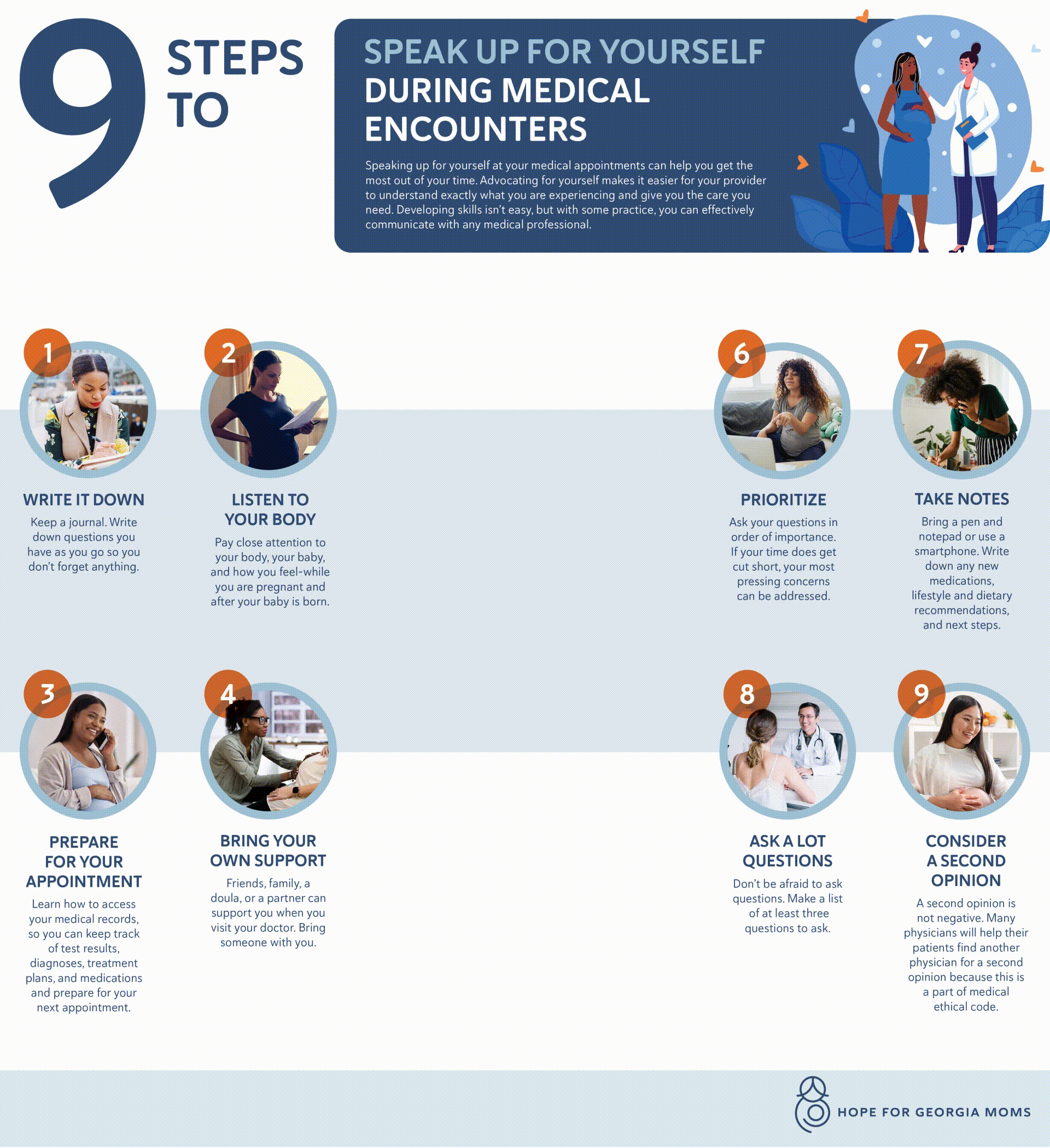

Communicating with your Healthcare Provider
Whether you are planning a pregnancy, are currently pregnant, or recently had a baby, you probably have questions. Honest open communication with your healthcare provider can help you protect your health and the health of your baby. When it comes to communicating with your doctor, here are a few tips that can help you make the most of your visits.
Make a list
of questions and concerns before your appointment, because sometimes we can forget issues once we are at our appointment. Since doctor’s visits are often brief, it’s important to prioritize the topics you want to discuss.
Bring a close friend
or family member with you. This can help when it comes to understanding information and remembering instructions once you are back home.
Take notes
about what the doctor says or ask a friend or family member to take notes for you.
Be honest;
the details are important. Share any worries, concerns, or details about your lifestyle, social obligations, and relationships at home and work.
Listen and participate:
Actively engage in conversation with your healthcare provider. Listen to their answers and ask follow-up questions if needed.
Ask for a recap.
At the end of your appointment, ask your doctor to repeat the main points. You can also ask for handouts or resources to help you remember once you are home.
Follow up.
If you get home and cannot remember instructions, contact your doctor.
Additional Information:
- Conversation guide: based on the HEAR HER™ Campaign guidelines
- National Institutes of Health “Talking With Your Doctor”: Pregnancy For Every Body: Talking with Your Healthcare Provider – NCMHEP | NICHD – Eunice Kennedy Shriver National Institute of Child Health and Human Development (nih.gov)
What does respectful care mean?
Respectful maternity care means you have a human right to thoughtful, safe, and quality care during and after giving birth. Many people have had difficult experiences in the healthcare system. There are steps you can take to make sure you get the care you are entitled to.
Education
You deserve to ask for and receive simple information that you can easily understand about your health care, health care provider and birthing experience options.
Informed consent
You deserve to make your own decisions about all your medical procedures.
Decision-making
You deserve to decide what happens to your body and to make decisions for your baby.
Quality of care
You deserve the highest-quality health care available.
Support
You deserve physical, emotional, and social support during pregnancy, labor and childbirth, and after giving birth.
Dignity and nondiscrimination
You deserve to be treated with dignity and respect during pregnancy, during labor and childbirth, and after giving birth — no matter what.
(source: Hear HER™ Campaign)


